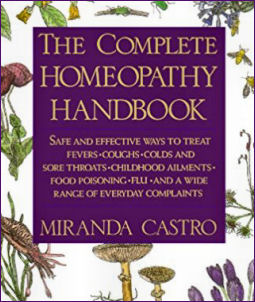What is homeopathy?
Homeopathy is a branch of medical therapeutics. It is a therapeutic method based on the prescription of drugs derived from the pharmacological principle of analogy, generally used with small or infinitesimal doses.
The principle of analogy as a starting point
Already formulated by Hippocrates, the principle of analogy establishes a link between the therapeutic action of a substance and its toxicological power.
It consists of administering a medicinal substance that, with high doses in the healthy individual, by intoxication, may provoke a set of symptoms similar to those that he presents in his illness.
This method is also the basis of the principle of vaccination, the fruit of observations by Edward Jenner in 1796, the year that Samuel Hahnemann published his research on the principles of medicinal drugs and developed his therapeutic approach.
The infinitesimal: a scientific challenge
By applying the principle of analogy, homeopathy uses the therapeutic effects of substances by attenuating their toxicity through the use of very small doses right until the “infinitesimal’ level.
Experience has shown that, in spite of the very high dilution of the active ingredient, the therapeutic effect remains. Although progress is made every day, the state of science still does not allow us to account for the mode of action of infinitesimal dilutions.
Homeopathy confirms that substances diluted beyond the known limits of matter* possess the detectable, measurable, reproducible and specific biological or physical activity of the diluted substance even though there isn´t the slightest trace of the substance. A great many hypotheses have been put forward to check this postulate. However, the infinitesimal remains a scientific challenge.
The homeopathic approach
Homeopathy is a scientific and human therapeutic method, as much open to scientific and technical progress as to the listening to the patient. It privileges prevention.
Only one medicine exists, the one that combines scientific knowledge with careful listening and observation of the patient in his specificity. Holistic medicine has to individualise each patient, not only homeopathy.
The doctor should not a priori choose a certain treatment or a certain therapeutic method but should take into account, each time and in each case, the state of his knowledge about each treatment and the specificity of the patient.
The choice of a homeopathic drug involves much more thorough individualisation than that of an antibiotic, for example. Once the diagnosis of the disease is made, once homeopathy is chosen as the treatment, the doctor has to search for the drug or drugs that specifically correspond to his patient in this disease. Each individual develops "his own" flu, "his own" sore throat, "his own" eczema, that is, he will develop symptoms and modalities that are personal and that the doctor has to take into account in order to be able to choose a specific homeopathic drug.
It is also true that the same homeopathic drugs are systematically used for certain symptoms or diseases, well beyond any principle of individualisation.
The Complete Homeopathy Handbook
The Complete Homeopathy Handbook: Safe and Effective Ways to Treat Fevers, Coughs, Colds and Sore Throats, Childhood Ailments, Food Poisoning, Flu, and a Wide Range of Everyday Complaints.
Homeopathy is an approach to medicine based on the principle that nay substance that can cause illness can also be a cure. Centuries old, its practice has always enjoyed wide popularity among individuals looking for safe and effective ways to treat illness as well as to improve their health.
The Complete Homeopathy Handbook is the definitive guide for using homeopathic remedies at home. It includes A-to-Z listings for external and internal remedies, with explanations for correctly diagnosing the symptoms of any particular injury or illness. The book also includes ten case studies and specific dos and don'ts to follow when treating more than seventy conditions.